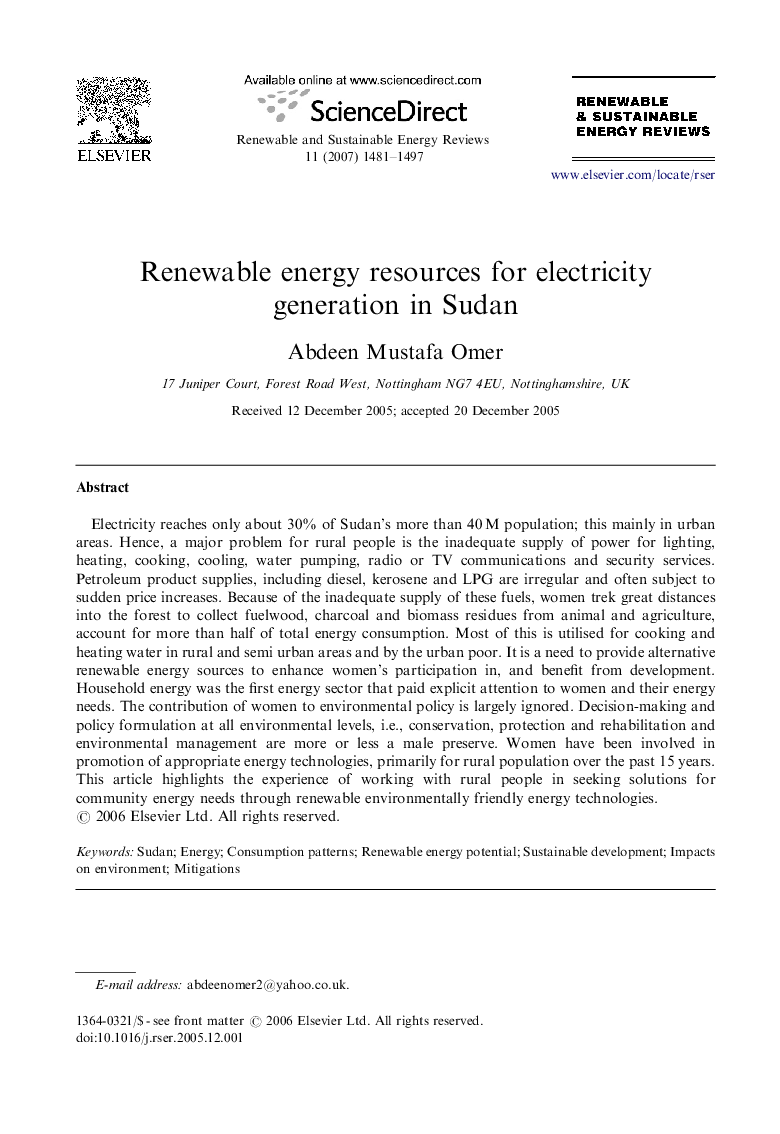| Article ID | Journal | Published Year | Pages | File Type |
|---|---|---|---|---|
| 1751970 | Renewable and Sustainable Energy Reviews | 2007 | 17 Pages |
Electricity reaches only about 30% of Sudan's more than 40 M population; this mainly in urban areas. Hence, a major problem for rural people is the inadequate supply of power for lighting, heating, cooking, cooling, water pumping, radio or TV communications and security services. Petroleum product supplies, including diesel, kerosene and LPG are irregular and often subject to sudden price increases. Because of the inadequate supply of these fuels, women trek great distances into the forest to collect fuelwood, charcoal and biomass residues from animal and agriculture, account for more than half of total energy consumption. Most of this is utilised for cooking and heating water in rural and semi urban areas and by the urban poor. It is a need to provide alternative renewable energy sources to enhance women's participation in, and benefit from development. Household energy was the first energy sector that paid explicit attention to women and their energy needs. The contribution of women to environmental policy is largely ignored. Decision-making and policy formulation at all environmental levels, i.e., conservation, protection and rehabilitation and environmental management are more or less a male preserve. Women have been involved in promotion of appropriate energy technologies, primarily for rural population over the past 15 years. This article highlights the experience of working with rural people in seeking solutions for community energy needs through renewable environmentally friendly energy technologies.
